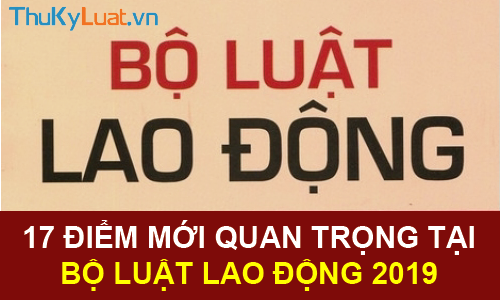The State strongly encourages and always creates opportunities for the disputing parties to be able to settle on their own, conciliate at a competent agency or organization instead of filing a lawsuit at the Court. So, are there cases where conciliation is a mandatory procedure before proceeding with a lawsuit in accordance with Vietnam’s regulations?
.jpg)
1. Mediation in labor disputes
Labor dispute settlement principles of the Labor Code 2019 of Vietnam continues to recognize the importance of resolving labor disputes through mediation.
According to the Labor Code 2019 of Vietnam, labor disputes include:
- Individual labor disputes; and
- Collective labor disputes:
+ Right-based collective labor disputes;
+ Interest-based collective labor disputes.
In particular, the following types of disputes are required to go through mediation procedures:
(1) Individual labor disputes
According to Clause 1 Article 188 of the Labor Code 2019 of Vietnam, individual labor disputes shall be settled through mediation by labor mediators before being brought to the Labor Arbitration Council or the Court, except for the following labor disputes for which mediation is not mandatory:
- Disputes over dismissal for disciplinary reasons; unilateral termination of employment contracts;
- Disputes over damages and allowances upon termination of employment contracts;
- Disputes between a domestic worker and his/her employer;
- Disputes over social insurance in accordance with social insurance laws; disputes over health insurance in accordance with health insurance laws ; disputes over unemployment insurance in accordance with employment laws; disputes over insurance for occupational accidents and occupational disease in accordance with occupational safety and health laws;
- Disputes over damages between an employee and organization that dispatches the employee to work overseas under a contract;
- Disputes between the outsourced worker and the client enterprise.
(2) Right-based collective labor disputes
According to Clause 2 Article 191 of the Labor Code 2019 of Vietnam, right-based labor disputes shall be settled through mediation by labor mediators before being brought to the Labor Arbitration Council or the Court.
(3) Interest-based collective labor disputes
According to Clause 2 Article 195 of the Labor Code 2019 of Vietnam, an interest-based collective labor dispute shall be settled through mediation by labor mediators before it is brought to the Labor Arbitration Council or a strike is organized.
=> All types of labor disputes including individual labor disputes, right-based collective labor disputes, interest-based collective labor disputes must go through conciliation procedures before requesting arbitration councils or courts for settlement. This is to be consistent with the principle of labor dispute settlement of the Labor Code 2019 of Vietnam.
2. Mediation in land disputes
According to Clause 1 Article 202 of the Land Law 2013 of Vietnam, the State shall encourage the disputing parties to conciliate themselves or have theừ land disputes settled through grassroots conciliation.
In case the self-reconciliation fails, the parties may send a petition to the commune-level People’s Committee of the locality where the disputed land is located, for reconciliation.
With the provision of the phrase "the State shall encourage", it is not clear whether the mediation procedure is mandatory for all land disputes. Regarding this issue, continue to base on the provisions at Point b Clause 1 Article 192 of the Civil Procedure Code 2015 of Vietnam guided in Clause 2 Article 3 of the Resolution No. 04/2017/NQ-HĐTP as follows:
2. For disputes over who has the right to use the land but has not been conciliated at the People's Committee of the commune, ward or township where the disputed land is located according to the provisions of Article 202 of the Land Law 2013, it is determined that the conditions for initiating lawsuits are not fully satisfied as prescribed at Point b Clause 1 Article 192 of the Civil Procedure Code 2015.
For other disputes related to land use rights such as: disputes over transactions related to land use rights, disputes over inheritance of land use rights, division of common property of husband and wife is land use right, etc., mediation procedures at the People's Committee of the commune, ward or township where the disputed land is located is not a condition for initiating a lawsuit.
Thus, according to the Resolution No. 04/2017/NQ-HĐTP, only land disputes about who has the right to use the land are required to go through conciliation proceedings, while other disputes such as disputes over transactions related to land use rights, disputes over inheritance of land use rights, division of common property of husband and wife is land use rights, etc. are not required mediation before proceeding with the lawsuit.
3. Mediation in divorce procedures
According to the Law on Marriage and Family 2014 of Vietnam, divorce can conduct mediation at least 2 times before the Court handles divorce proceedings. To be specific:
- Grassroots-level conciliation:
According to Article 52 of the Law on Marriage and Family 2014 of Vietnam, the State and society shall encourage grassroots-level conciliation when a husband or wife requests a divorce. The conciliation must comply with the law on grassroots-level conciliation. Grassroots-level conciliation is an opportunity for couples to resolve their conflicts, which is encouraged but not required by the state.
- Conciliation at court:
According to Article 54 of the Law on Marriage and Family 2014 of Vietnam, after accepting a divorce petition, a court shall conduct conciliation in accordance with the civil procedure law. Unlike grassroots-level conciliation, court mediation is a mandatory procedure that must be carried out before settling divorce proceedings.
Exceptions:
Although the mediation procedure at the Court is mandatory, according to the provisions of Article 207 of the Civil Procedure Code 2015 of Vietnam, in the following 04 cases, the Court cannot conduct conciliation:
- The defendants or the persons with relevant interests and duties are intentionally absent though having been duly summoned twice by courts.
- The involved parties cannot take part in the mediation for plausible reasons.
- The involved parties being wives or husbands in divorce cases have lost their civil act capacity.
- One of the involved parties applies for non-mediation.
Thus, when handling the divorce request, the spouses will be facilitated to conduct arson at least 2 times: 1 time at the facility and 1 time at the Court. It can be seen that the State does not encourage divorce but creates conditions and opportunities for couples/couples who request a divorce to mediate and resolve conflicts with each other before settling divorce proceedings.
Thuy Tram
 Article table of contents
Article table of contents










.Medium.png)
.Medium.png)
.Medium.png)
.Medium.png)
